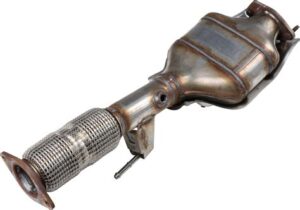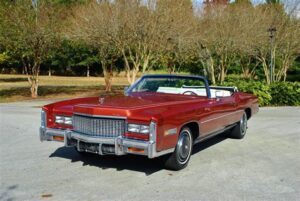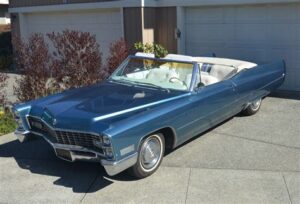Explore the crucial role of the catalytic converter, signs of failure, its effects, replacement tips, and cost insights for your Cadillac CTS.The 2006 Cadillac CTS is a luxurious sedan that combines performance with style, but like any vehicle, it’s not immune to issues. One crucial component that often requires attention is the catalytic converter—a device essential for reducing harmful emissions and ensuring optimal engine performance. Understanding how this part functions and recognizing the signs of failure can save you from costly repairs and keep your Cadillac running smoothly. In this blog post, we will explore what a catalytic converter does, the symptoms indicating it may be failing, the potential consequences of neglecting this issue, and the process and costs associated with replacing it. Whether you’re a seasoned Cadillac enthusiast or a new owner, this guide will equip you with the knowledge you need to maintain your vehicle’s health and performance.
Understanding the catalytic converter
A catalytic converter is a crucial component of your vehicle’s exhaust system, particularly for your 2006 Cadillac CTS. It serves the primary purpose of reducing harmful emissions produced during the combustion process. The device acts as a filter, converting toxic gases like carbon monoxide, hydrocarbons, and nitrogen oxides into less harmful substances before they are released into the atmosphere.
Typically located between the engine and the muffler, the catalytic converter contains precious metals such as platinum, palladium, and rhodium, which facilitate chemical reactions necessary for converting these hazardous emissions. This makes it an essential part of your vehicle’s environmental protection strategy, significantly contributing to meeting emission standards set by regulatory bodies.
When functioning correctly, a catalytic converter not only helps to protect the environment but can also enhance the vehicle’s performance and fuel efficiency. However, if it begins to fail, it can lead to a host of issues, including poor engine performance, reduced fuel economy, and an increase in harmful emissions. Understanding how a catalytic converter works is vital for recognizing early signs of trouble in your Cadillac CTS.
Signs of a failing catalytic converter
Your catalytic converter is an essential component of your vehicle’s exhaust system, primarily responsible for reducing harmful emissions. A failing catalytic converter can lead to various performance issues and increased pollution. Here are some key signs to look out for:
- Check Engine Light: If this light illuminates, it often indicates a problem with the catalytic converter, among other issues.
- Decreased Acceleration: A noticeable drop in your car’s acceleration can be a sign that the catalytic converter is clogged, restricting exhaust flow.
- Bad Smells: A failing catalytic converter can cause a sulfur-like or rotten egg smell due to the conversion of exhaust gases.
- Exhaust System Noises: If you hear unusual noises, such as rattling or hissing, it may indicate a malfunctioning catalytic converter.
Being attuned to these symptoms will help you catch problems early, potentially saving you money and maintaining the overall health of your vehicle. Regular checks and a keen sense of your car’s behavior can help you pinpoint when your catalytic converter may be on its way out.
In addition to these signs, it’s important to pay attention to your vehicle’s performance. A poorly functioning catalytic converter can drastically affect your vehicle’s fuel efficiency. If you notice an increase in fuel consumption, it might be time to get your vehicle checked for a failing catalytic converter.
If you identify any of these warning signs, consult with a qualified mechanic as soon as possible. Ignoring these signals could lead to more significant and costly repairs down the line.
Effects of a faulty catalytic converter
A faulty catalytic converter can lead to a range of serious issues for your vehicle, especially for a 2006 Cadillac CTS. One of the primary roles of a catalytic converter is to reduce harmful emissions. When it malfunctions, it can significantly compromise the environmental impact of your car.
Here are some key effects of a failing catalytic converter:
- Increased Emissions: A damaged catalytic converter cannot effectively convert harmful pollutants into less harmful gases, leading to higher emissions that may cause your vehicle to fail emission tests.
- Reduced Engine Performance: When the catalytic converter is blocked or failing, it can restrict exhaust flow, which may lead to a noticeable decrease in engine power and acceleration.
- Poor Fuel Economy: A faulty catalytic converter often leads to poor fuel efficiency, meaning you’ll find yourself making more frequent trips to the gas station, as the engine has to work harder to compensate for the lack of efficiency.
Additionally, you might notice unusual sounds coming from the exhaust system. A rattling sound may indicate internal damage to the catalytic converter itself. If left unaddressed, these problems can lead to more serious engine issues and expensive repairs.
It is crucial to monitor the condition of your catalytic converter regularly to avoid these consequences. If you suspect that your 2006 Cadillac CTS is experiencing any of these symptoms, it may be time to seek professional assessment and, if necessary, replacement.
Replacing your Cadillac CTS catalytic converter
If you own a 2006 Cadillac CTS, you’re probably aware of the importance of maintaining your vehicle’s emission control system. One of the key components of this system is the catalytic converter, which plays a critical role in reducing harmful exhaust emissions. Over time, this component can fail, requiring a replacement to ensure your vehicle runs efficiently and complies with environmental standards.
When considering replacing your Cadillac CTS catalytic converter, it’s essential to understand the steps involved:
- Assessment: Determine whether the catalytic converter is indeed failing. Common signs include a sluggish engine, a rotten egg smell from the exhaust, or the illumination of the check engine light.
- Purchase: Choose a high-quality replacement part that matches your vehicle specifications. It’s recommended to use OEM (Original Equipment Manufacturer) parts for best performance.
- Installation: Depending on your mechanical skills, you can either do the replacement yourself or hire a professional mechanic to ensure proper installation.
It’s worth noting that replacing a catalytic converter can vary in cost, typically ranging from $1,000 to $2,500, including parts and labor. Factors like local labor rates and whether you choose an OEM part can influence this price.
Cost of replacing a catalytic converter
Replacing a catalytic converter can be a significant expense for vehicle owners, especially if it’s a 2006 Cadillac CTS. The cost varies widely based on several factors including the make and model of the vehicle, labor costs in your area, and whether you opt for an original equipment manufacturer (OEM) part or an aftermarket component.
On average, the total cost of replacing a catalytic converter may range from $1,000 to $3,000. This price typically includes both the parts and labor involved in the installation. Below is a breakdown of the costs:
| Component | Estimated Cost |
|---|---|
| OEM Catalytic Converter | $800 – $1,500 |
| Aftermarket Catalytic Converter | $300 – $700 |
| Labor Costs | $100 – $150 per hour |
When considering the cost to replace a catalytic converter, it’s important to also factor in potential additional expenses. For example, if the converter has failed due to an underlying issue, such as a faulty oxygen sensor or exhaust leak, those repairs will add to the overall cost. It’s advisable to consult with a mechanic to diagnose any issues properly.
Frequently Asked Questions
What is the function of the catalytic converter in the 2006 Cadillac CTS?
The catalytic converter in the 2006 Cadillac CTS is designed to reduce harmful emissions from the engine by converting toxic gases into less harmful substances before they are released into the atmosphere.
What are the signs of a failing catalytic converter in a 2006 Cadillac CTS?
Signs of a failing catalytic converter may include decreased engine performance, reduced fuel efficiency, a sulfur smell, and the illuminated Check Engine light on the dashboard.
How much does it typically cost to replace the catalytic converter on a 2006 Cadillac CTS?
The cost to replace the catalytic converter on a 2006 Cadillac CTS can vary widely, typically ranging from $1,000 to $2,500 for parts and labor, depending on the quality of the replacement part and the labor rates of the mechanic.
Are aftermarket catalytic converters a good option for the 2006 Cadillac CTS?
Aftermarket catalytic converters can be a cost-effective option for the 2006 Cadillac CTS, but it’s important to choose reputable brands to ensure compliance with emission laws and maintain vehicle performance.
Can a clogged catalytic converter cause engine damage in a 2006 Cadillac CTS?
Yes, a clogged catalytic converter can lead to increased back pressure in the engine, which may result in overheating and, if left unaddressed, potential engine damage.
How can I prolong the life of my 2006 Cadillac CTS catalytic converter?
To prolong the life of your 2006 Cadillac CTS catalytic converter, regular maintenance is important, such as keeping the engine properly tuned, using high-quality fuel, and addressing any engine issues promptly.
Is it legal to drive a 2006 Cadillac CTS with a faulty catalytic converter?
No, it is illegal to drive a 2006 Cadillac CTS with a faulty or removed catalytic converter in many regions due to emissions regulations. Doing so can result in fines and penalties.





